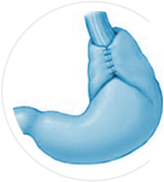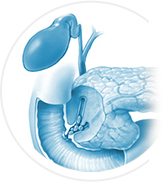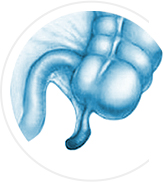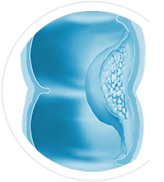Under general surgery we have different diseases and conditions that can be approached by different types of advanced techniques. Some of them are by laparoscopy and, in other cases, we use other methods of performing surgery such as scalpel free surgeries or open conventional surgery. Here we have some of the diseases and surgical options we provide:

GERD or Acid Reflux disease
This is a condition that has been increasing in incidents in our population. The principal symptoms are, heartburn, cough, acid reflux, recurrent “upper respiratory tract infections”, asthma like symptoms, just to name a few. Most patients control these symptoms with over the counter medications such as antacids or omeprazol and in fact feeling better after taking these medications is an indication that surgery can be very helpful, and much more important, can provide a definitive solution to the problem. Most of the people suffering from acid reflux disease have what we call a hiatal hernia; this condition predispones the acid reflux from the stomach to the esophagus, and since this problem is an anatomical one, medication alone is not going to resolve the problem. We have to fix the hernia. What needs to be done is to pull back the stomach in its normal place, close the gap encountered in the diaphragm and make a valve around the first portion of the stomach (Nissen Fundoplication). This operation is a much more simpler operation than it used to be now that we perform it via laparoscopy and the patient only has to stay overnight and is discharged the next day. It has a high rate of success and our patients discontinue their medication, without any symptoms.

Gallbladder Stones
This is also a very common problem. Stones in the gallbladder can cause discrete discomfort or a very intense pain accompanied by nausea after eating greasy meals. In some cases, gallbladder stones can migrate into a duct of the body interrupting passage of bile from the liver to the gut, giving the person a yellow colored skin appearance. Some people can develop inflammation of the pancreas which can be mild, moderate or in some cases so severe that can be life threatening. Once diagnosed, we perform a scheduled laparoscopic Cholecistectomy; this is an operation that consists in the removal of the gallbladder in order to prevent further episodes of pain and the much more feared complications such as choledocal stones, jaundice and/or pancreatitis. Now this is an operatiion performed in a very safe manner, requiring only overnight stay as it is done by laparoscopy, which gives you the advantage of less pain and rapid recovery.

Appendectomy
This is the inflammation of the apendix. Symptoms include periumbilical pain, loss of appetite, migration of the pain to the lower quadrant of the abdomen and fever acomppanied by laboratory alterations (these are done by your surgeon once you’re in the hospital). The main goal is to make the diagnosis as soon as possible because if not treated in time, this disease can be life threatening. In most cases it can be resolved by performing a laparoscopic appendectomy, but the lenght of hospital stay depends on the extent of the inflammation of the appendix and in the presence or abscence of pus in the abdomen. We encourage our patients to not self medicate with pain killers in order to perceive signs and symptoms in a more early manner to make the diagnosis.

Tumor of the small bowel and colon
Tumors of the small bowel and colon cancer are a well known entity in our practice. We have the tools to diagnose and treat colon cancer, including biopsy and resections (removal). All of this is done via laparoscopy which, as we have been saying, promotes a much more rapid recovery and with less postoperative pain.




